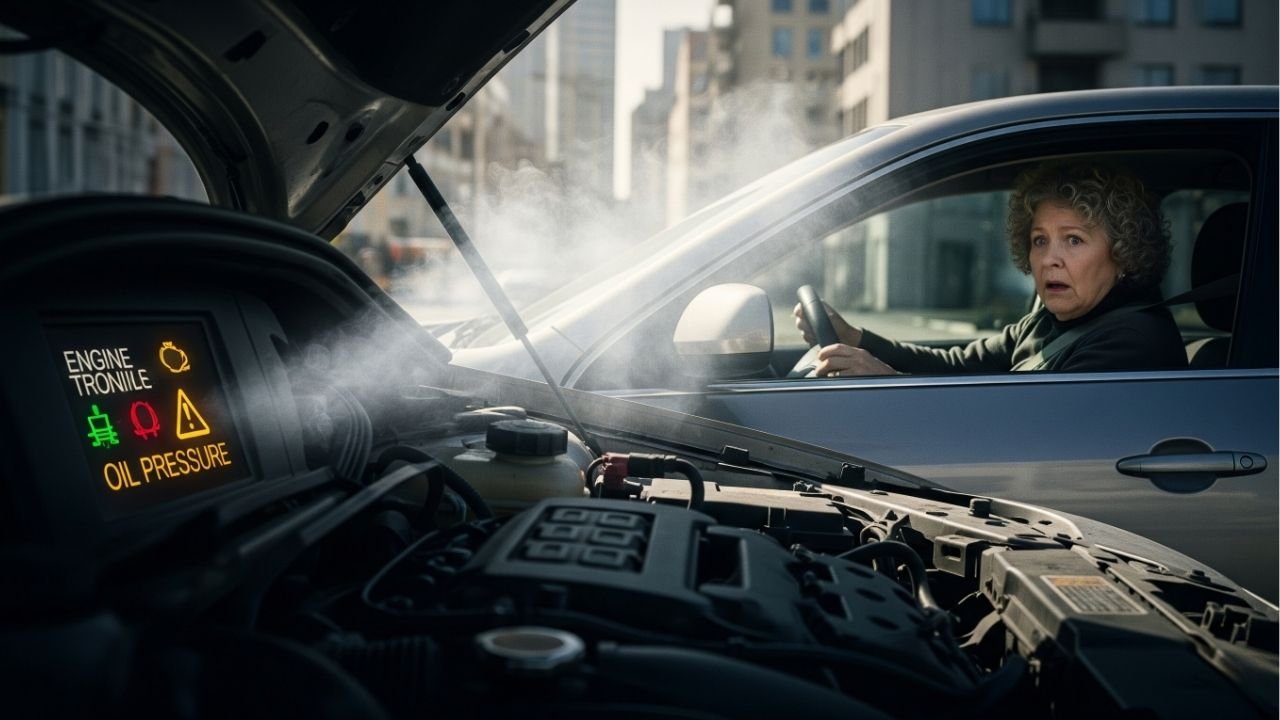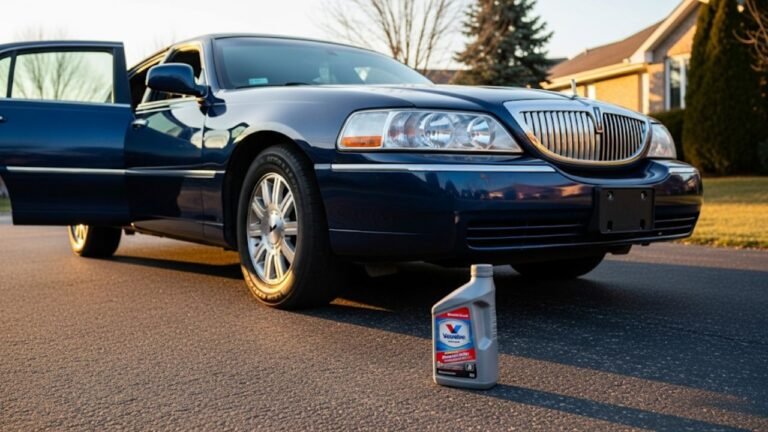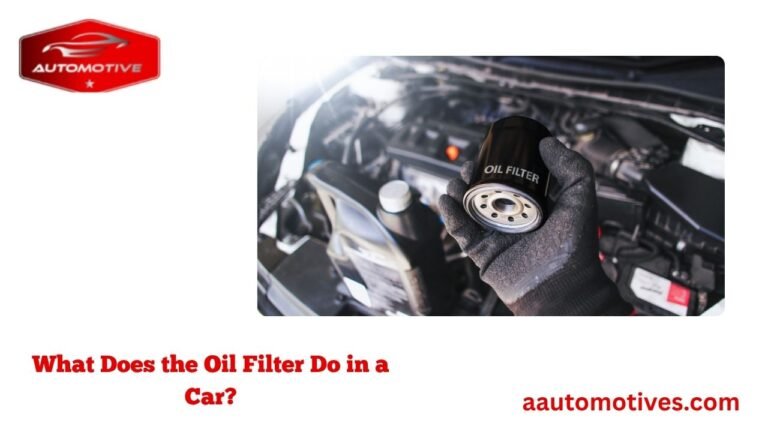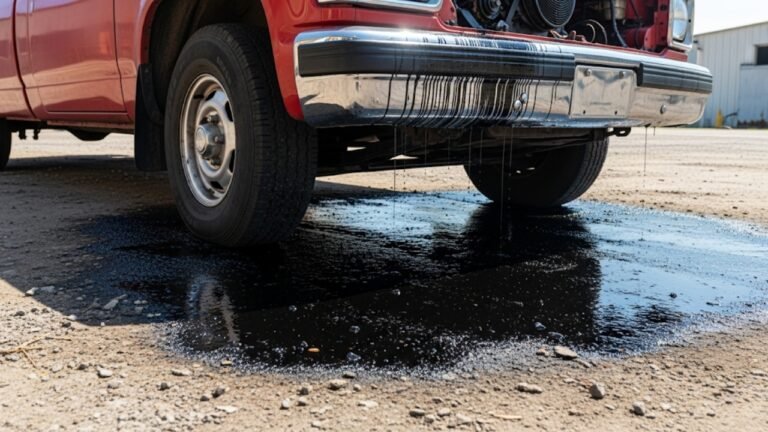Will Low Oil Cause Car to Cut Off?

Picture this. You’re driving on a warm afternoon, maybe singing along to your favorite song, when suddenly—boom—your engine shuts off. No warning light. No sound. Just silence.
I’ve been there. And trust me, it’s terrifying.
The moment your car cuts off in the middle of traffic, your brain screams questions: Did I run out of gas? Did the battery die? Is this the end for my beloved old sedan? But one issue many of us overlook is low engine oil.
Now you might be asking, “Will low oil cause car to cut off?” Short answer—yes, it absolutely can. And it’s a lot more common (and dangerous) than people think.
This article is here to give you the full scoop. No jargon. No fluff. Just straight-up answers, stories, and advice from someone who’s made the mistakes so you don’t have to.
Why Oil is the Lifeblood of Your Car
Engine oil is like blood for your car’s heart—the engine. It doesn’t just lubricate the moving parts. It also:
-
Keeps your engine cool
-
Prevents corrosion
-
Reduces friction
-
Cleans debris and metal particles
-
Helps maintain fuel efficiency
Think of your engine as a group of metal dancers spinning at high speeds. Without oil, they grind against each other like sandpaper on skin. Eventually, things break. And when they do, your engine could seize or shut down entirely.
Can Low Oil Cause Engine Failure or Shutoff? Absolutely. Here’s Why.

Here’s what actually happens inside:
-
As oil drops, the engine loses lubrication.
-
Friction increases, causing parts to overheat.
-
Overheating leads to warping, seizing, or breaking.
-
The computer detects abnormal pressure and shuts down the engine.
This isn’t just a “bad day” situation. If you continue driving like that, you could blow the engine completely—and then you’re looking at a repair bill bigger than your rent.
What Are the Warning Signs Before the Engine Shuts Off?
Before your car reaches the point of no return, it usually whispers for help. Recognizing the signs can save your car and your wallet. Look out for:
-
Oil Warning Light: This is your biggest red flag. Never ignore it.
-
Burning Smell: If it smells like something’s cooking, pull over. It’s not dinner.
-
Ticking or Knocking Sounds: Like a tiny hammer tapping the engine.
-
Overheating: If your temperature gauge shoots up, stop immediately.
-
Rough Idle or Stalling: Your car feels like it’s hiccuping or losing rhythm.
These symptoms are your car’s way of screaming, “Help me!” Please don’t brush them off. I did once—and my engine died 20 miles from the nearest mechanic.
A Personal Story: How Low Oil Left Me Stranded at 1 A.M.
Let me get real for a second.
About two years ago, I was driving back from a friend’s wedding. It was late, I was tired, and my dashboard light had been flickering all night. But I ignored it. “I’ll check the oil tomorrow,” I told myself.
Big mistake.
Around 1 A.M., the car began to shudder. No noise, no drama—just a gentle glide to a full stop. Dead in the middle of the road. I checked the dipstick. Dry. Not even a drop.
That night, I waited for three hours for roadside assistance. All because I ignored the simplest maintenance check: engine oil.
So yes, I can confidently say from experience, low oil can cause a car to cut off. And it’s not worth gambling with.
Let’s Break it Down: Key Effects of Low Oil on Your Car
Here’s a simple table to show how low oil affects different parts of your car.
| Component Affected | Impact of Low Oil | Long-Term Consequences |
|---|---|---|
| Engine Bearings | Increased friction, faster wear | Engine seizure or blowout |
| Pistons & Cylinders | Overheating and scarring | Loss of compression |
| Camshaft/Crankshaft | Metal-on-metal contact | Total engine failure |
| Oil Pump | Works harder to circulate little oil | Pump damage or failure |
| Sensors & Electronics | Faulty readings due to poor oil pressure | Inconsistent engine performance |
As you can see, the entire engine suffers when oil runs low. It’s not just one part—it’s a domino effect of destruction.
Bullet Point Breakdown: What Happens When Oil Gets Too Low
Here’s a quick digest of what you risk by driving with low oil:
-
Engine overheating
-
Internal parts grinding down
-
Sudden engine shutdown
-
Increased emissions
-
Permanent engine damage
-
Lower fuel efficiency
-
Higher repair bills
Each of these could mean days without your car. And let’s be real: being carless is not just inconvenient—it can cost your job, your appointments, or even your safety.
Can Your Car Cut Off Without Warning? Sadly, Yes.
Some cars don’t offer any warning. No lights. No sounds. Nothing. That’s the scariest part.
This is especially true with older models, or cars where the oil sensor is faulty or damaged. If the system doesn’t detect a problem, you may only find out something’s wrong when the car completely dies.
It’s like fainting without feeling dizzy first.
That’s why it’s so important to check your oil regularly. You don’t have to be a mechanic. All it takes is a paper towel and five minutes on a flat surface.
Modern Cars vs. Older Cars: The Shut-Off Systems Vary
In newer cars, there’s a bit of a safety net. Most modern vehicles have engine control modules (ECMs) that monitor oil pressure in real time. If the ECM senses danger, it may trigger limp mode, or even a complete shutdown to prevent catastrophic damage.
But in older cars, there’s no such luxury.
If the oil runs low, the engine just keeps going—until it can’t anymore. That often ends with:
-
The crankshaft locking up
-
Rods bending or snapping
-
Metal shavings circulating through the engine
-
Complete engine failure
So whether your car is smart or classic, low oil is still a silent killer.
How Often Should You Check Your Oil? Here’s the Real Talk.
Here’s the golden rule I live by now: Every two weeks or every 500 miles, whichever comes first.
Some people wait until the check engine light flashes. Others go by the dealer’s 5,000-mile rule. But in reality, driving conditions vary—hot weather, stop-and-go traffic, or old engines burn oil faster than you think.
Checking oil is free, fast, and simple. Here’s how:
-
Park on level ground.
-
Turn off the engine and wait 10 minutes.
-
Pull the dipstick out and wipe it clean.
-
Insert it again fully, then remove to check the level.
-
If it’s below the minimum mark, add oil ASAP.
So What Should You Do If Your Car Cuts Off from Low Oil?
First things first—don’t panic. I know, easier said than done when you’re on the shoulder of a busy road. But once your car shuts off, the damage might already be happening. What matters most now is what you do next.
Here’s a step-by-step guide:
-
Pull Over Safely – Get as far off the road as possible. Turn on hazard lights.
-
Check Oil Level – Wait for the engine to cool. Use a dipstick if possible.
-
Add Oil (If Available) – Even cheap oil is better than no oil in an emergency.
-
Call a Mechanic or Tow Truck – Driving further could destroy the engine.
-
Don’t Restart the Engine Immediately – Give it time to cool and re-lubricate.
Trying to drive a car with too little oil is like sprinting on a broken ankle. You might move, but you’re only making it worse.
Preventative Maintenance: The Small Habits That Save Your Engine
We all forget things. I mean, I once left my coffee mug on the roof and drove off. But when it comes to your engine oil, forgetting is expensive.
Here are some small things you can do that make a big difference:
-
Check oil every 2 weeks
-
Change oil every 3,000–7,000 miles (depending on your car and oil type)
-
Use high-quality oil that suits your climate
-
Keep a quart of oil in your trunk—just in case
-
Listen for odd sounds or notice poor performance
-
Fix oil leaks immediately
Also, don’t trust the “100% synthetic lasts forever” hype. Yes, it lasts longer, but no oil is invincible. And no, topping off isn’t a full oil change.
The Hidden Risks of Driving with Low Oil: It’s Not Just the Engine
Most people focus only on the engine when thinking about low oil. But here’s the kicker—it affects other vital systems too:
-
The Transmission: Especially in older models, oil helps reduce strain on gear mechanisms.
-
Cooling System: Without enough oil, your radiator and coolant system work harder.
-
Exhaust System: Poor lubrication increases emissions and can clog your catalytic converter.
And get this: some cars burn oil slowly without you even noticing. You won’t see leaks. No warning lights. But your oil just… vanishes.
So if your fuel economy is dropping or your engine is sluggish, don’t ignore it. It might be crying for oil.
How Mechanics Diagnose Low Oil Shutdown
When you take your car in after it cuts off, here’s what a good mechanic will likely check:
-
Oil level and color (is it thick, sludgy, burnt?)
-
Oil pressure sensor (to see if it failed or gave wrong readings)
-
Engine compression test
-
Check for seized parts
-
Inspect oil pump performance
-
Look for metal shavings in oil filter or pan
All of these give clues about how bad the damage is—or if you’ve been lucky.
Sometimes, just adding oil can get your car running again. Other times, the engine needs a rebuild. Or worse… a full replacement.
Is It Ever Safe to Drive with Low Oil—Even Just to a Shop?
This question comes up a lot. The honest answer?
Only if it’s an absolute emergency.
And even then, only for a short distance—and at very low speeds.
If your dipstick shows no oil at all, do not drive. You risk turning a $30 oil fix into a $3,000 engine replacement.
Instead, call for help. Borrow oil from a neighbor. Walk to a gas station if you must. I once rode a bicycle with a quart of oil in my backpack just to avoid driving on low oil. It felt silly, but it saved my engine.
What Happens After the Cut-Off? Recovery or Ruin?
The aftermath really depends on how long the engine was running with low oil.
Here’s a general idea:
| Oil Starvation Duration | Possible Outcome |
|---|---|
| 1–2 minutes | Engine may survive with added oil |
| 5+ minutes | Likely damage to bearings, pistons |
| 10+ minutes | Serious damage; rebuild or replacement |
| Drove while knocking | Probable engine seizure or full failure |
Sometimes your car will start again after adding oil. But don’t trust that alone. You still need to inspect for deeper damage.
FAQs: Will Low Oil Cause Car to Cut Off?
1. Can a car suddenly stop running due to low oil?
Yes. If the oil level or pressure drops too far, the engine might automatically shut off to prevent damage—or it may seize from lack of lubrication.
2. How long can I drive on low oil before the car cuts off?
Not long. Some engines can tolerate a short period, but many will fail in under 5 minutes if oil is dangerously low.
3. What damage can happen after my car cuts off from low oil?
You could face bent rods, warped pistons, overheated bearings, oil pump damage, or a completely blown engine.
4. Will the oil warning light always come on before the engine shuts off?
Not always. Some sensors fail or don’t detect the issue fast enough. That’s why regular checks are vital.
5. Can I just top off the oil instead of changing it?
Topping off is a short-term fix. It doesn’t replace dirty or broken-down oil. You still need full changes based on mileage and condition.
6. Is it expensive to fix a car that shut off due to low oil?
Yes, it can be. Minor issues might cost $100–$300, but full engine rebuilds often run $2,000 or more.
7. Will synthetic oil prevent this problem?
Synthetic oil lasts longer, but it still burns or leaks in some engines. You still need to check and change it regularly.
8. How can I know if low oil is why my car cut off?
You may notice burning smells, knocking sounds, or an oil light before shutoff. Afterward, a mechanic can check oil levels, damage, and error codes.
Conclusion: Your Car Speaks—Will You Listen?
If you’ve made it this far, you now know the answer to the big question: Will low oil cause car to cut off?
Yes. And not only that—it can destroy your engine silently and suddenly.
But here’s the good news: this is one of the easiest problems to avoid.
Just imagine giving your car a weekly sip of water, like a houseplant. That’s all it takes to avoid disaster. A few minutes with the dipstick could save you thousands in repairs—or keep you from being stranded in the rain like I was that one awful night.
So next time you walk by your car, pop the hood. Check the oil. Your future self will thank you—and your engine will purr with joy.






